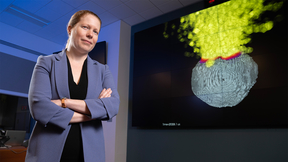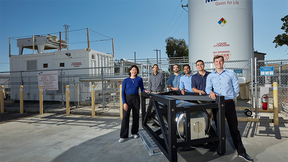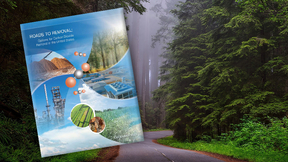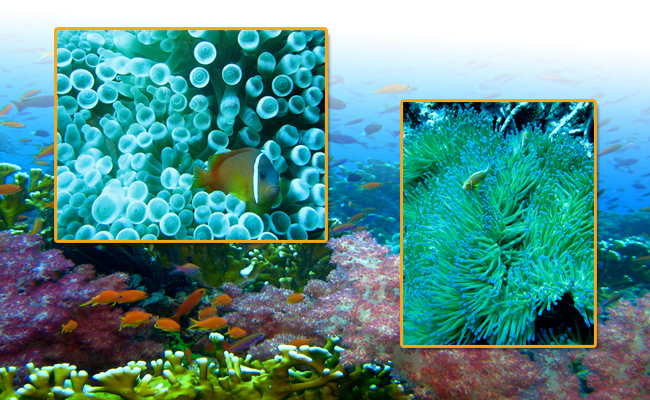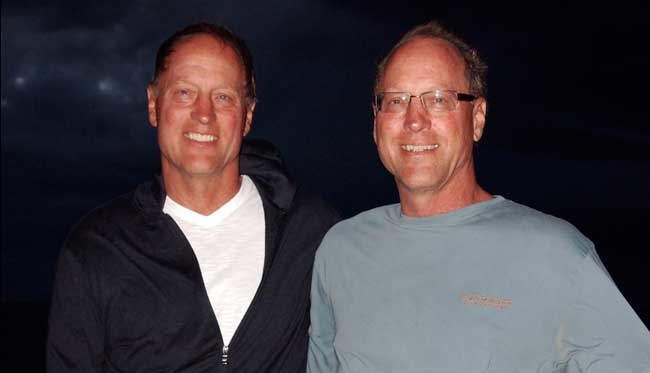An underwater adventure
Warner, the Lab's associate director at large and principal deputy for Global Security, has transitioned those early experiences into ones that are not only more vibrant but have become one of his life's passions: underwater photography.
According to Warner, his interests have always lain outside. He grew up in the outdoors, surfing in California and taking annual ski trips with his twin. However, after nearly 15 years of those ski trips, they began to fall by the wayside in favor of something much different: scuba diving. Around the time that he joined the Lab in 1979, Warner started diving, thanks to friends that owned a dive shop in Hawaii; Allen was certified seven years ago. And so they had something in common again, a shared interest that found its roots decades before.
"I wouldn't call myself a very experienced diver -- in diving terms I have 150 dives, and I know colleagues at the Lab with thousands," Warner said. "But it is something that I enjoy, and my brother and I make time every year to go together."
"There's definitely an aspect of art in this kind of photography," Warner said. "It's just natural. You see such amazing things underwater, and taking a picture of it really solidifies the memory." For the first five of their annual trips, the brothers stuck to the Caribbean and Southern Atlantic, exploring places like Cozumel, Bonaire, Roatan, the Turks and Caicos and the Bahamas. In 2011, in celebration of their 60th birthday, they decided to venture further afield, and found themselves on a dive boat in Fiji for a week.
"Dive boats are a fun way to dive because it's all that you do," Warner said. "It was a real adventure, and Fiji was absolutely spectacular."
Armed with simply a Canon Powershot, underwater case, and a strobe, he captured more than 1,000 images of the bounty of wildlife found around Fiji's soft corals. These photos join those from previous dive trips, serving to fix the memories even more firmly in his mind. While Warner says the time in Fiji was the best whole week of diving they have had, there is one memory from a previous dive that stands out. A night dive at the town pier in Bonaire remains one of the most stunning underwater vistas he's seen.
"It's so incongruous because above you is a working pier, with trucks pulling in to load the boats and tugs zooming away, and only 15 feet underneath you're in a whole other world," he said. "The pier is so alive, covered in coral and bright orange anemones with octopus, sea horses, squid and frog fish. It was just incredible."
According to Warner, the diving and the photography won't stop in Fiji. While he and Allen are undecided as to a location for their next trip, they are in agreement on one thing -- there's no end in sight for their annual adventure.
"These trips are a motivator for me. I can get bogged down at work, and they allow me to get my head into a place where I'm thinking about what's out there and what I might be doing in the future," Warner said. "And besides, I think you can probably dive until you are 100!"
Contact
Breanna Bishop[email protected]
925-423-9802
Tags
Global SecurityScience
Featured Articles
